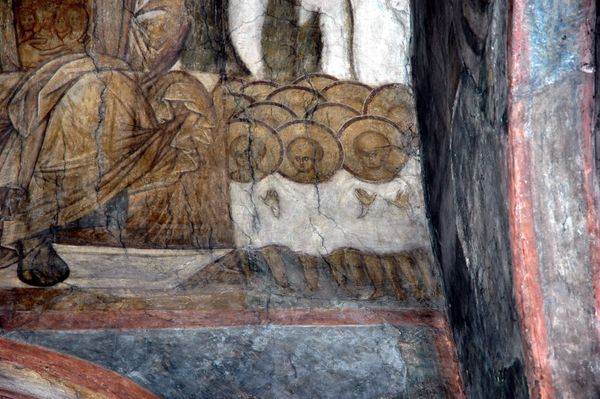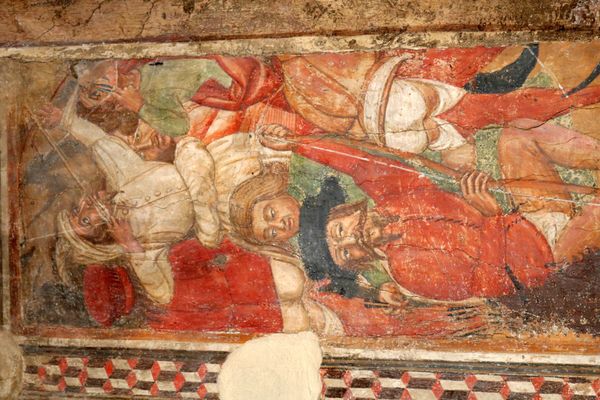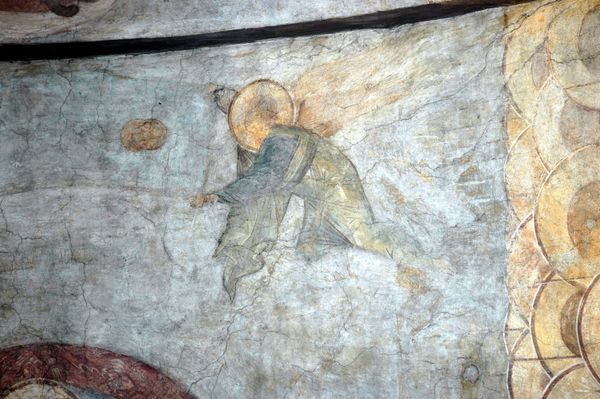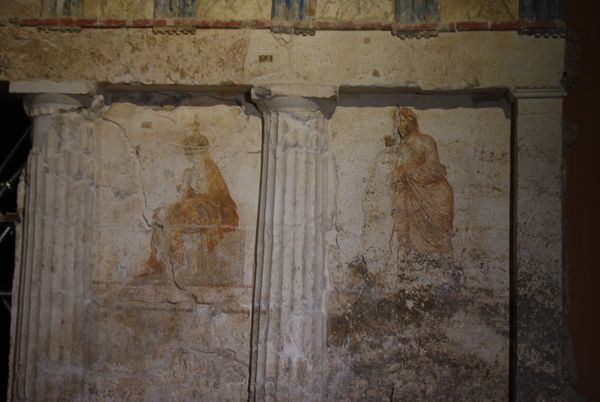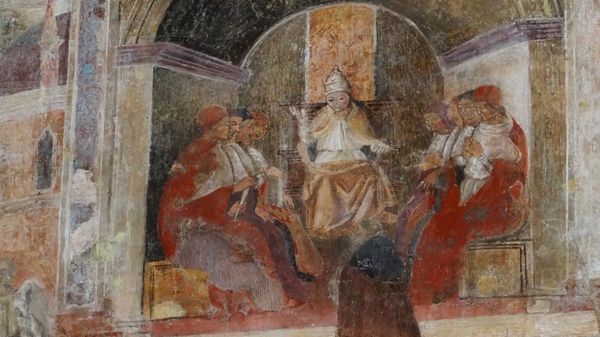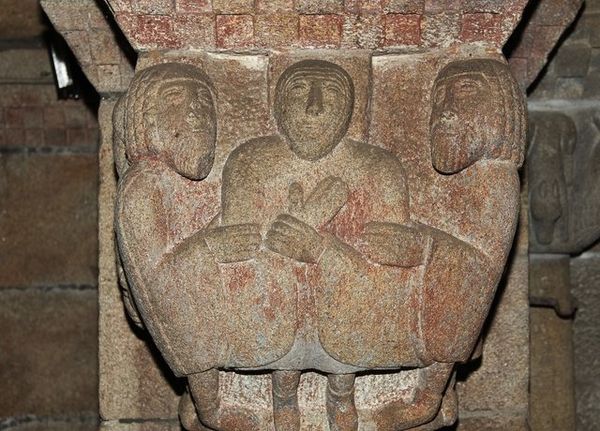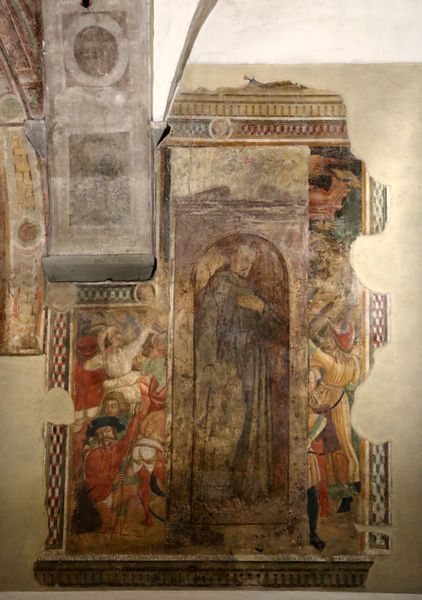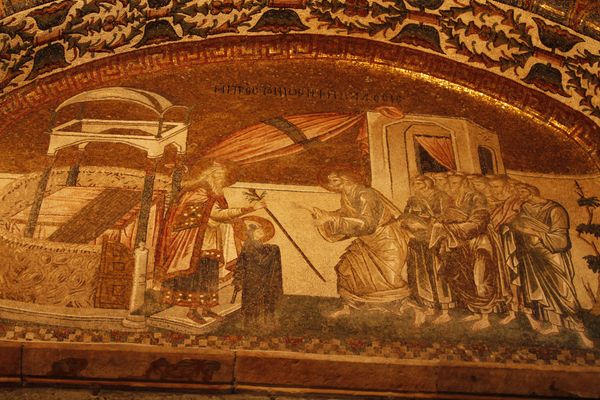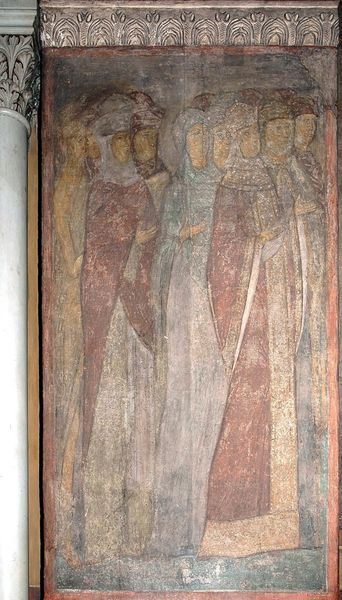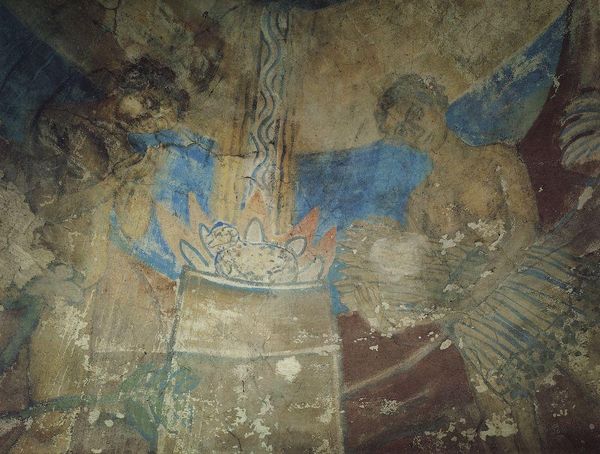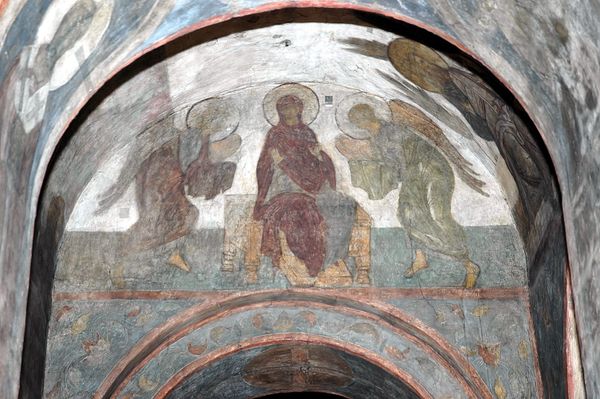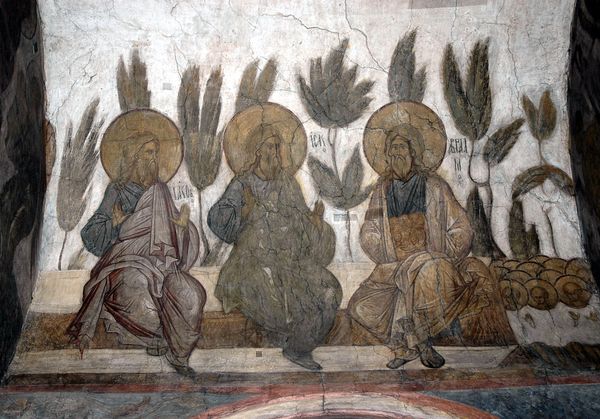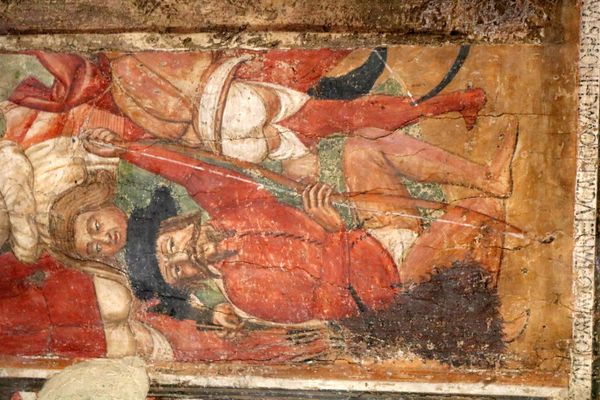
The Last Judgement: Procession of the righteous to heaven 1408
0:00
0:00
andreirublev
Assumption Cathedral, Vladimir, Russia
painting, fresco
#
byzantine-art
#
medieval
#
narrative-art
#
painting
#
holy-places
#
figuration
#
fresco
#
underpainting
#
christianity
#
history-painting
#
christ
Copyright: Public domain
Curator: Wow, it's so faded! Like a memory clinging to the stone. Editor: Indeed. What we're seeing is a fresco fragment, "The Last Judgement: Procession of the Righteous to Heaven," painted around 1408 by Andrei Rublev for the Assumption Cathedral in Vladimir, Russia. It depicts the saved making their way toward paradise. Curator: Faded it may be, but it’s still profoundly moving. There’s a kind of weightlessness in their gait, or what's left of it. Like they're floating toward…what? Is it joy? Peace? Maybe just relief! Editor: Relief, I think, hits the mark. Depictions of the Last Judgment during the medieval period were meant to be both instructive and terrifying, tools to maintain social order through divine decree. Rublev's piece, however, presents a softened version of the righteous: serene, almost gentle. Note the intentional subversion of harsh, judgmental dogma in favor of a more merciful outlook. Curator: Exactly! I get the sense he wasn't trying to scare people straight. He was showing them, showing us, what could be. Look at their hands; they’re reaching out, almost tentatively. There’s a hesitancy there, a vulnerability that’s…human. Beautifully human. And is it just me, or is there almost a musicality to the composition? Editor: The rhythmic procession creates a palpable sense of movement, as though you could join their march. But more than simply movement, Rublev offers a complex visual thesis on morality: if you embody faith, then you, too, can exist in the canon. His subjects also are neither overwhelmingly gendered nor obviously raced. Curator: That's it! It's about *becoming*, not just *being*. This isn't some final pronouncement, but a journey—a soft, eternal walk towards grace. It’s less about the ‘judgement’ and more about the ‘last’ bit…that feeling of closure, completion. Knowing you’re finally…home. Editor: Closure, yes, but also continual negotiation. This isn't a simplistic portrayal of "good versus evil." The march implies constant navigation between historical expectation, the fallibility of being, and future iterations. Curator: Well said. It makes you wonder: What judgements are we placing on ourselves, on each other, that need softening? Perhaps we need to create some frescoes of our own. Editor: Perhaps indeed, ones that echo not a judgment cast in stone, but one that allows the procession to freedom to move on through it all.
Comments
No comments
Be the first to comment and join the conversation on the ultimate creative platform.
